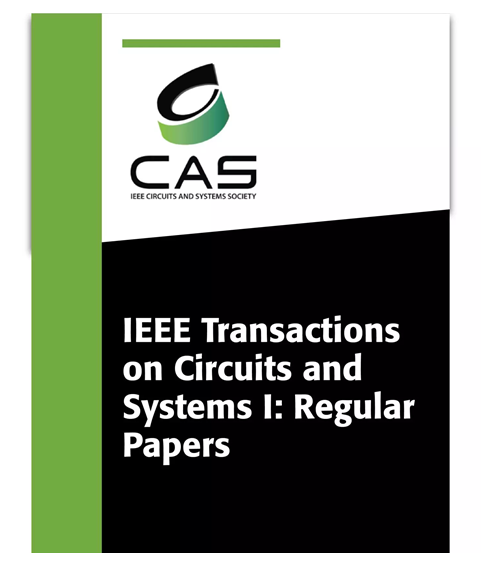An Efficient FPGA-Based Dilated and Transposed Convolutional Neural Network Accelerator
IF 5.2
1区 工程技术
Q1 ENGINEERING, ELECTRICAL & ELECTRONIC
IEEE Transactions on Circuits and Systems I: Regular Papers
Pub Date : 2024-08-27
DOI:10.1109/TCSI.2024.3428636
引用次数: 0
Abstract
This work presents a Field Programmable Gate Array (FPGA)-based deep neural network (DNN) accelerator that can maintain consistently high efficiency when executing various neural network architectures, including convolutional neural network (CNN), transposed and dilated convolution (TD-convolution) operations for modern computer vision (CV) tasks. To deal with the utilization degradation issue with a large processing unit (PE) array, a 3-D mapping strategy that adaptively tailors different layer configurations is proposed to optimize the parallelism dimensions of the PE, which significantly increases the hardware utilization to enhance the accelerator efficiency. Moreover, to minimize the implementation and performance overhead resulting from the TD-convolution operations, a unified processing flow is proposed to realize an integrated operation of traditional and TD-convolution. This allows the accelerator to bypass redundant zero operations, further boosting overall efficiency. The 4096-PE accelerator implementation on Intel Stratix 10 FPGA achieves a throughput performance of 2.597–2.870 TOPS with an efficiency of 0.63-0.70 GOPS/DSP across various DNN networks. This represents基于 FPGA 的高效稀释和变换卷积神经网络加速器
本研究提出了一种基于现场可编程门阵列(FPGA)的深度神经网络(DNN)加速器,该加速器在执行各种神经网络架构(包括卷积神经网络(CNN)、转置卷积和扩张卷积(TD-convolution)操作)时能够保持持续的高效率,从而满足现代计算机视觉(CV)任务的要求。为解决大型处理单元(PE)阵列利用率下降的问题,提出了一种自适应调整不同层配置的三维映射策略,以优化 PE 的并行性维度,从而显著提高硬件利用率,提升加速器效率。此外,为了最大限度地减少 TD 卷积操作带来的执行和性能开销,还提出了一种统一的处理流程,以实现传统卷积和 TD 卷积的集成操作。这样,加速器就可以绕过多余的零操作,进一步提高整体效率。在英特尔 Stratix 10 FPGA 上实现的 4096-PE 加速器在各种 DNN 网络中实现了 2.597-2.870 TOPS 的吞吐量性能和 0.63-0.70 GOPS/DSP 的效率。与最先进的设计相比,吞吐量和效率分别提高了 1.72 倍和 1.73 倍。
本文章由计算机程序翻译,如有差异,请以英文原文为准。
求助全文
约1分钟内获得全文
求助全文
来源期刊
CiteScore
9.80
自引率
11.80%
发文量
441
审稿时长
2 months
期刊介绍:
TCAS I publishes regular papers in the field specified by the theory, analysis, design, and practical implementations of circuits, and the application of circuit techniques to systems and to signal processing. Included is the whole spectrum from basic scientific theory to industrial applications. The field of interest covered includes: - Circuits: Analog, Digital and Mixed Signal Circuits and Systems - Nonlinear Circuits and Systems, Integrated Sensors, MEMS and Systems on Chip, Nanoscale Circuits and Systems, Optoelectronic - Circuits and Systems, Power Electronics and Systems - Software for Analog-and-Logic Circuits and Systems - Control aspects of Circuits and Systems.

 求助内容:
求助内容: 应助结果提醒方式:
应助结果提醒方式:


